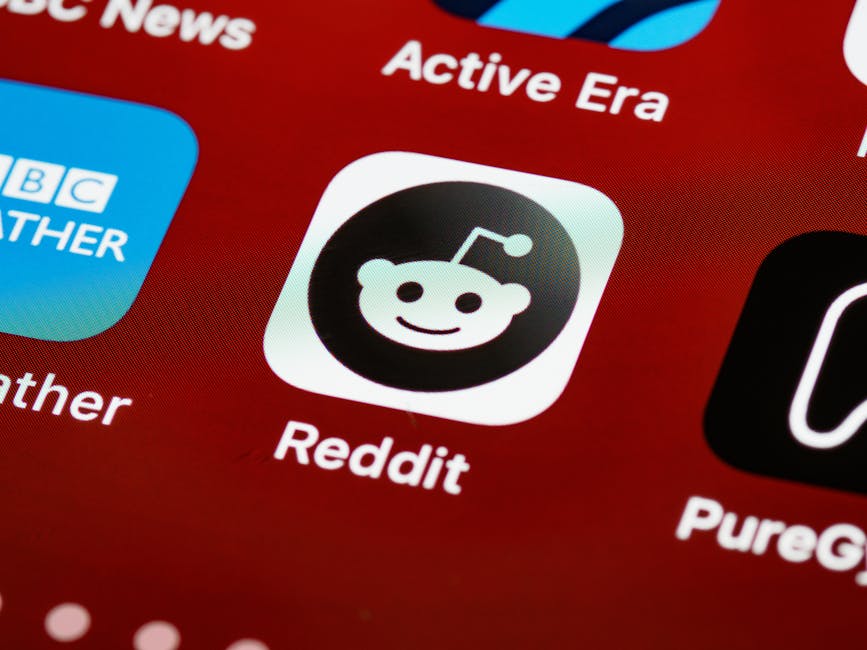Picking a company to build your mobile app in 2025, that whole thing, it can honestly feel like a big headache sometimes. There are so many options, you know? Everyone says they’re the best, or they can do everything you want, but how do you really tell? It’s a lot of money and time often on the line here, so making the wrong pick, well, that’s not something anyone wants to really do. This guide, it’s supposed to help you sort through all that noise, help you figure out what’s what, and find someone good.
When you’re looking to create an app, you’re not just buying a piece of software, not really. You’re actually buying into a whole process, into a team, and that team’s way of working. It’s pretty important to remember that because it affects everything. You want a team that gets your vision, someone who can turn what’s in your head into something that works on a phone. That’s the dream, isn’t it, for your project.
You’ll see a lot of folks talking about technology stacks and design principles and all these things. But before all that, before even getting into those more technical bits, you got to figure out what you actually want. This is, like, step zero. Without a clear idea, you’re just going to wander around and spend money.
What Exactly Do You Need for Your App Project, Anyway?
Before you even start looking at lists of companies, really take a minute. Sit down. Think about your app. What is it going to do? Is it for customers, or maybe something for your own team inside your business? That’s a big question, the purpose.
Write down its main functions, like a bulleted list almost. Does it need to let people buy things? Or just show them information? Maybe it needs to connect with other systems you already use. Every single feature matters a lot.
What sort of people will use this app? Understanding your users is, like, super important. Are they tech-savvy youngsters, or maybe older folks who want things simple? Their preferences will totally shape how the app looks and how it works.
Think about the platforms too. Does it need to be on Apple iPhones and Google Android phones? Or just one of them to start with? Doing both usually costs more money and takes more time, that’s just how it tends to be with these things.
Sometimes, people forget about what comes after the app is built. Will you need updates regularly? Or maybe just some help if something breaks? These are things you probably need to consider from the very beginning.
It helps to have a rough idea of your budget, like a ballpark number, before you talk to anyone. Companies will ask, and it helps them tell you what’s actually possible. If your budget is tiny, you might need to scale back the features quite a bit.
Digging Around for the Right Crew: Where to Look and What to Check
Okay, so you got a basic idea of what your app should do. Now, where do you even begin to find these app development companies? Well, there are a few usual spots people go looking. Online searches, obviously, are a big one nowadays.
You might ask around, too. Friends in business, other people who’ve had apps built. Personal recommendations can be really good because they come from someone you already sort of trust, which is nice. Word of mouth, normally.
When you find a few companies, look at their past work. Do they have a gallery or a portfolio? See the apps they’ve already made. Do they look good? Do they seem to function properly, you know, the apps themselves?
Check if they’ve made apps that are like what you want to build. For example, if you want an e-commerce app, it’s generally better if they’ve done e-commerce apps before. They understand the particular quirks there.
Reading reviews, that’s another good thing to do. Look on different sites, not just their own website. See what other clients say about working with them. Were they easy to talk to? Did they meet their deadlines?
It’s also good to see how long they’ve been doing this. A company that’s been around for a while probably knows what it’s doing, generally. New companies can be good, but there’s less history to look at.
When you’re looking around, if you happen to be in Texas, specifically thinking about the Houston area, you might want to check out some local folks. Sometimes, having a team nearby can be a real plus, for meetings and things. You could check out a place like this if you need Mobile app development Houston, just as an example of what might be available in your region. Proximity can really matter for some types of projects, you know.
Look at their team, if you can. Do they have designers, coders, project managers, all the different sorts of people you’d think you’d need? A full team means they’re probably more capable of handling all sides of a project.
See how they talk about their process for development. Do they seem organized? Do they have steps they follow, or does it sound a bit, well, messy? A clear process is usually a pretty good sign, it really is.
Talking Money and Time: Getting the Deal Straight
Now, this is where things can get a bit tricky for many. Money and time are two big parts of any project. You need to make sure you and the app company are on the same page about both these elements.
When they give you a quote, what exactly is included in that price? Is it just the building part, or does it also cover design, testing, and putting it up on the app stores? All these things add up, normally.
Be careful of super low bids. Sometimes, those companies will cut corners or charge you extra later for things that should have been included. It’s often too good to be true, those really cheap prices.
Similarly, don’t just go for the most expensive one thinking it’s always the best. That’s not always the case either. You have to compare what you’re getting for the money. It’s considered to be a balance that’s needed.
Ask about their payment schedule. Do they want it all upfront? Or in stages as milestones are met? Staged payments are usually better, as it keeps them accountable and you don’t feel like you’ve paid for nothing.
What about timing? How long do they think it will take to get your app done? Is that realistic for the features you want? A super fast timeline often means a super high cost or something important is missing.
Communication, that’s really big. How often will they update you? What method do they use, emails, calls, or some project management tool? You want to know what’s going on with your app, naturally.
It’s really important that you feel like they are listening to you. If they just nod and don’t ask questions, that’s a bit of a warning sign. They should be asking about your business, your users, what problems you’re trying to fix.
Make sure everything is written down in a contract. The scope of work, the cost, the timeline, what happens if things go wrong. Don’t rely on just verbal promises, because it really won’t help you later.
Think about intellectual property, too. Who owns the code once it’s done? Normally, it should be you, the client. But sometimes, they might try to keep some rights, which is something you should definitely check.
After the Handshake: What Happens Next and Support Stuff
So, the app is built, great! But the journey isn’t really over at that point, not at all. There’s still more to think about even after the main part of the project is considered complete. You got to prepare.
Will the company help you put the app on the Apple App Store and Google Play Store? This can actually be a bit of a process itself, with forms and guidelines and all sorts of things to follow. It takes time.
What kind of support do they offer after launch? Will they fix bugs if they pop up? For how long? And is that part of the original cost, or is it an extra charge? These are pretty typical questions to ask.
Mobile operating systems, like iOS and Android, they get updated all the time. Your app might need updates to keep working well with the newer versions. Does the company do that, or is it on you?
Think about ongoing maintenance. Apps aren’t just build-it-and-forget-it things. They often need little tweaks, security updates, or maybe even new features added down the line. It’s a continuous thing.
Is there a guarantee for the work? If the app has problems right after launch, will they fix it without charging you more? A reputable company often offers some sort of warranty period, which is comforting.
Future development, too. If your app is successful, you’ll probably want to add more features later. Is this company someone you could see working with for a second phase of development? That is often key.
Having a relationship where you can grow with the company, where they understand your business, that saves a lot of time in the long run. You don’t have to explain everything from scratch again.
It is worth noting that a good app development company wants a long-term relationship. They’re not just looking for a quick paycheck and then running off. They care about your success, usually.
Choosing an app development company, it’s a big decision, a really big one for your future. Take your time, ask a lot of questions, and trust your gut feeling a little bit too. You want a partner, not just a vendor, you know? Someone who is genuinely interested in what you are doing.
Frequently Asked Questions About Choosing a Mobile App Development Company
Q1: How do I know if a company is truly good at mobile app development?
You should look at their past projects very carefully. See if they have made apps similar to what you want. Also, check their client reviews on independent sites, and try to talk to some of their old clients directly. A strong portfolio and good word from past customers are pretty good signs.
Q2: What’s the typical cost range for a mobile app in 2025?
Oh, this one really varies a lot. A very basic app might start from like $25,000 to $50,000. More complex apps, with many features or tricky integrations, can easily go into the hundreds of thousands, sometimes over $200,000 or more. It depends greatly on features, design, and how many platforms it’s for, normally.
Q3: How long does it usually take to build a mobile app?
Again, it depends a lot on the app’s complexity. A simple app could be ready in maybe 3 to 6 months. A more complicated one, with custom designs and features, could take 8 months to over a year. The planning phase and testing also take a fair bit of time, don’t forget those parts.
Q4: Should I pick a local company or an offshore one for app development?
Both have their good and bad points. A local company means easier face-to-face meetings and probably better cultural understanding, which is helpful. Offshore companies often cost less money, but time zone differences and communication might be harder sometimes. It really depends on what you value more for your specific project.
Q5: What questions should I definitely ask a potential mobile app development partner?
You should ask about their process, what tools they use, who will be on your project team, and how they handle communication. Also, ask about post-launch support, who owns the code, and what happens if the project goes off schedule or over budget. Getting these things clear from the start saves a lot of bother later on.




